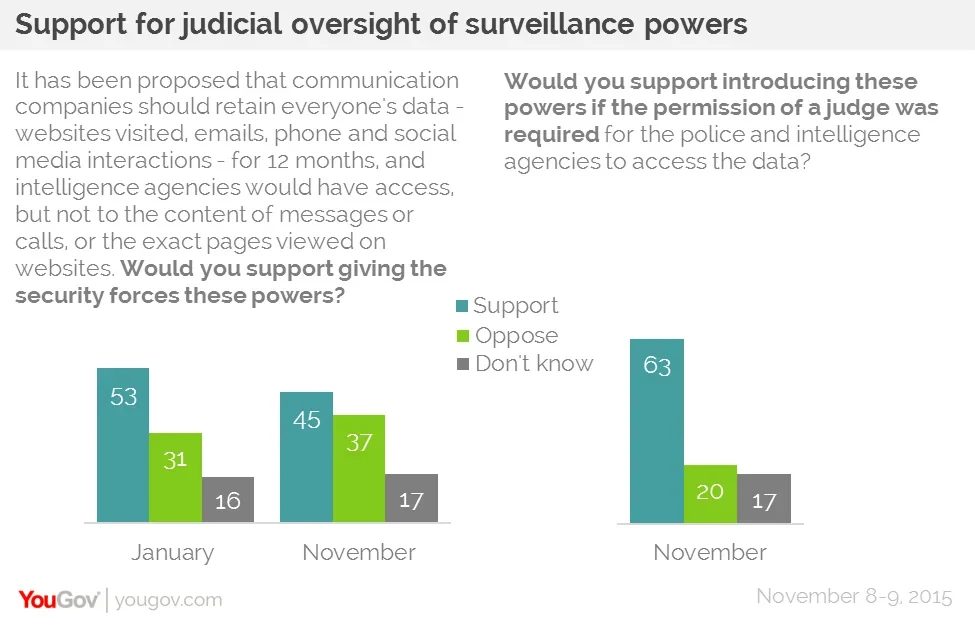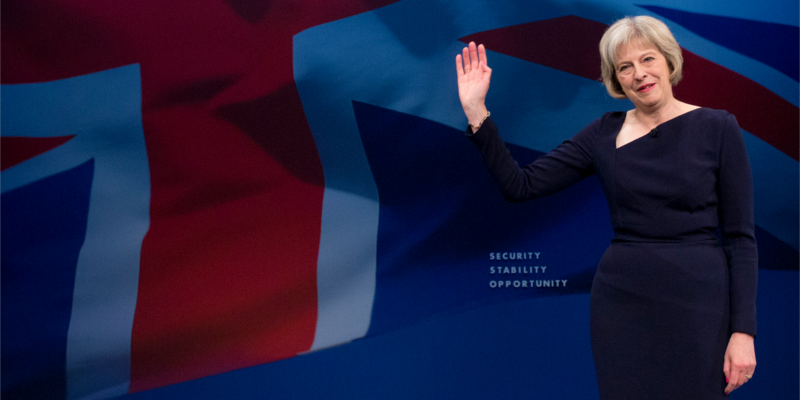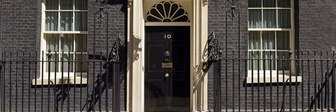Support for giving security forces extensive access to the public’s communications data has dipped below a majority – but adding judiciary oversight boosts support to 63%
The horrific events in Paris on Friday involving the deaths of at least 127 people in eight related attacks have brought into sharp focus the need for scrupulous intelligence. Although identities and details of the communication methods of the perpetrators remain unclear, the prevention of such atrocities is the primary justification for new surveillance measures included in Home Secretary Theresa May’s draft Investigatory Powers Bill. The Bill, an update to the Communications Data Bill or ‘Snoopers’ Charter’ defeated in 2013, contains new requirements for broadband firms to hold a list of the websites visited by every person for a year.
Crucially, a panel of judges would be given a veto over requests for more intrusive surveillance powers including accessing emails, hacking into computers and tapping phones.
In YouGov polling conducted in November – prior to the Paris attacks – support for the security forces having wide-ranging access to everyone’s website, email, phone and social media interactions for 12 months had fallen from a majority of 53% in January to 45%. Opposition had increased from 27% to 31%.

Surveillance powers have been under scrutiny throughout the year, with particular concern arising over David Cameron’s past threats to prevent companies from encrypting messages, technology used by apps such as iMessage and WhatsApp. Shadow Home Office minister Keir Starmer and Conservative MP David Davis had said prior to Theresa May’s announcement that authorisation for intrusive surveillance had to be independent – not granted by police or politicians – suggesting the powers be given to the judiciary.
When YouGov asked if people would support the security forces having the same powers as above if the permission of a judge was required to access the data, support rose to a majority of 63%, with 20% still in opposition.
There has been a slight decline in trust in officials to behave responsibly with information obtained using powers granted by the Home Secretary – from 63% in January to 57% with regards to MI5 and MI6, and from 45% to 33% for the Home Office, ministers and civil servants.
PA image











